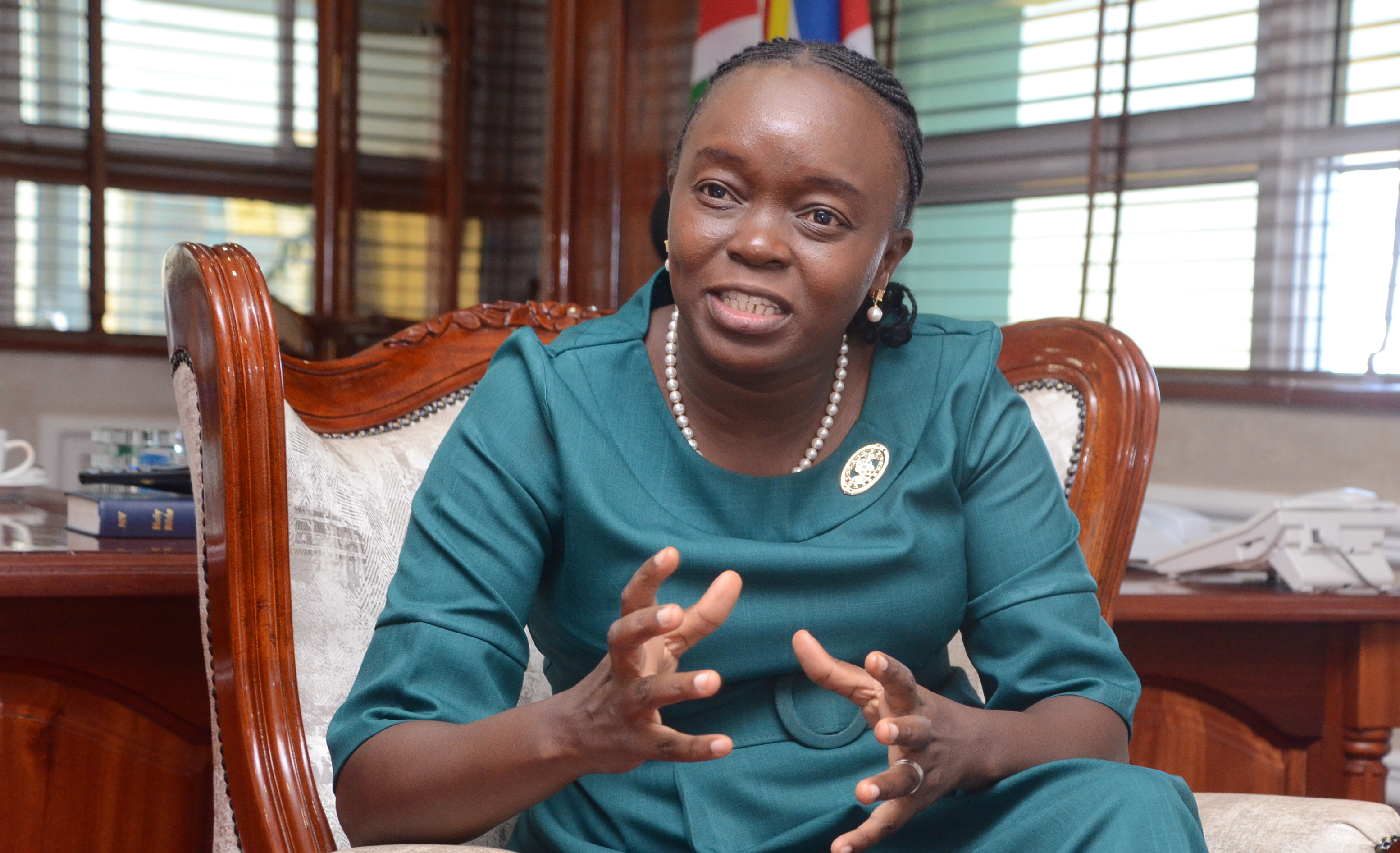
 Environment CS Deborah Barasa during an interview at Afya House on March 14, 2025 /DOUGLAS OKIDDY
Environment CS Deborah Barasa during an interview at Afya House on March 14, 2025 /DOUGLAS OKIDDYThe successful phase-out of ozone-depleting substances is
expected to help prevent approximately two million skin cancers each year by
2030.
Ozone Secretariat executive secretariat Maria Socorro said the ongoing implementation of the Montreal Protocol, which was adopted under the Vienna Convention, has led to the phase-out of 99 per cent of ozone-depleting substances globally.
“Failure to control ozone depletion effectively would have led to almost 63 million additional cataract cases in people born in the USA between 1890 and 2100,” she said.
These shocking statistics were shared on Tuesday, even as Kenya joined the global community in commemorating the International Day for the Preservation of the Ozone Layer, also known as Ozone Day.
Environment CS Deborah Barasa said the responsibility of protecting mankind's shared heritage is not the duty of one nation, but of all humanity.
“It is a call for global solidarity and for national action as well as community implementation,” Barasa said.
The CS said through science, corporation and exchange of knowledge, the convention laid the foundation for the Montreal protocol, the most successful environmental treaty in history.
She said the theme of this year, 40 years of the Vienna Convention from science to global action, reminds us that all decisions rooted in science can inspire global unity and concrete solution.
Kenya joined the Vienna Convention and the Montreal protocol in November 1988 and since then has ratified all five amendments.
These commitments show Kenya steadfast dedication to protecting the ozone layer and tackling climate change.
Barasa said there is a need to ensure the future generations live free from the harmful effect of ultraviolet radiation and climate warming gases.
She said Kenya has embraced the Kigali Amendment, which addresses hydroflorocarbons (HFCs), powerful greenhouse gases with high global warming potential.
Barasa said the country also has in place regulations on import and export of HFCs through a robust licensing system.
She said Kenya has developed the national Cooling Action Plan, which aims to ensure all Kenyans can access safe, affordable cooling for homes, hospitals, agriculture and businesses.
The CS said the collaboration with the Kenya Revenue Authority Customs and border Control Department ensures imports and exports remain tightly monitored.
She said the move ensures that illegal trade is prevented and compliance is strengthened.
“All these efforts are designed to do one thing, protect our ozone layer, while mitigating climate change. So we want every Kenyan child, farmer, student and worker to enjoy a healthy life, shielded from the dangerous ultraviolet radiation and extreme heat,” she said.
Barasa said government action alone is not enough, urging Kenyans to play a role from the choices they make at home and in business.
Head of development cooperation German embassy Maren Kneller said GIZ has helped support 17 technical institutions by providing tools and equipment that are non-ozone depleting and non-climate destructive for training.
Kneller said they have trained 35 refrigeration trainers in the country.
“Some 300 custom officers from Kenya Revenue Authority and National Environment Management Authority have been trained on how to use the integrated custom system as a means of identifying all ozone depleting substance and non-ozone depleting refrigerants and controlling quanties imported,” she said.
The ozone layer is the natural shield against the sun’s harmful ultraviolet rays, which can cause severe health risks such as skin cancers.
When the ozone layer is destroyed, the ultraviolet rays from the sun to the earth’s surface are increased.
So dangerous are the radiations that they damage the immune system and increase exposure to skin cancer and eye cataracts.
Long-term exposure to high levels of UVB radiation can severely ruin most animals, plants and microbes.
The Montreal Protocol is a global agreement that gives all parties specific responsibilities related to the phase-out of different groups of substances and control of substance trade.
The protocol also calls for an annual reporting of data and national licensing systems to control substance imports and exports.
The landmark agreement came into effect in 1989 and is one of the most successful global environmental deals.
Kenya signed the Montreal Protocol in February 1988 and has ratified it.
On October 15, 2016, the Montreal Protocol was amended when delegates from all over the world convened in Kigali from October 10-15 for the 28th meeting of parties.
The Kigali Amendment seeks to phase-down the hydroflorocarbons, responsible for global warming.













